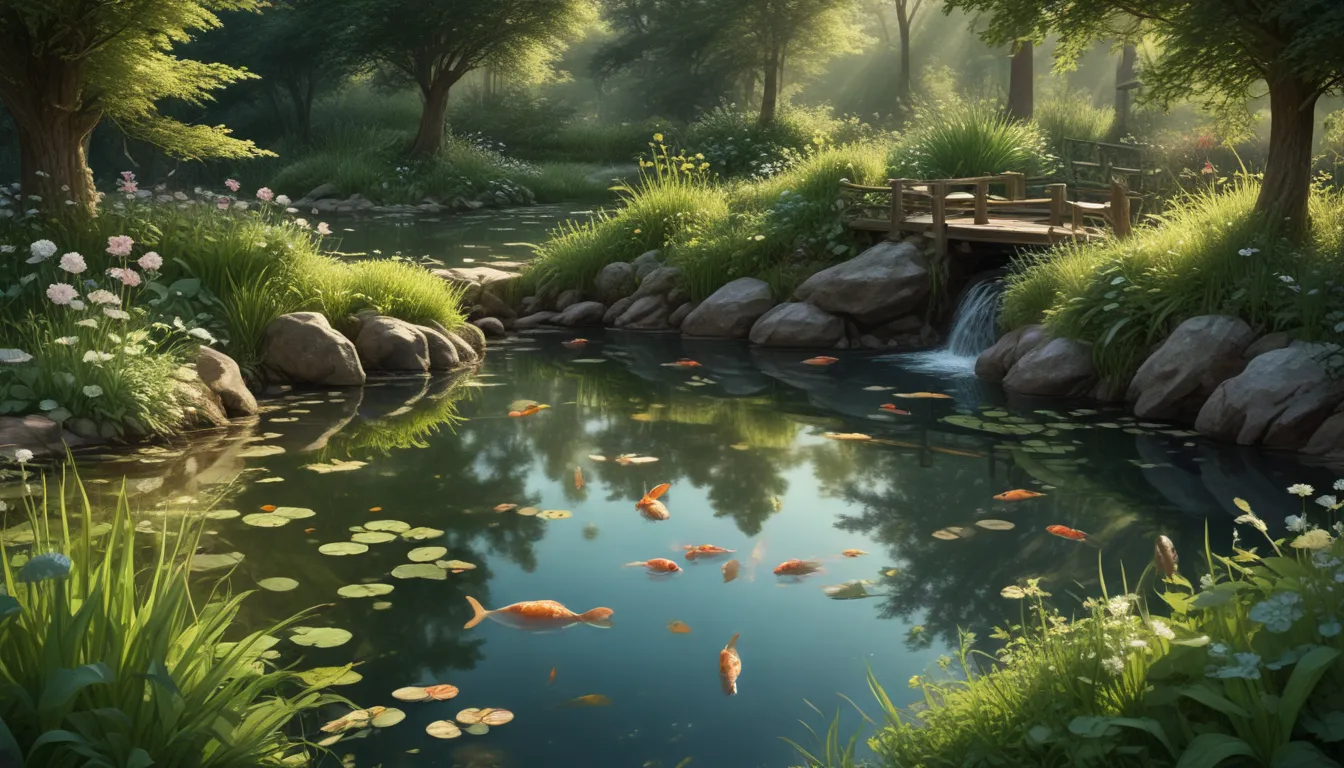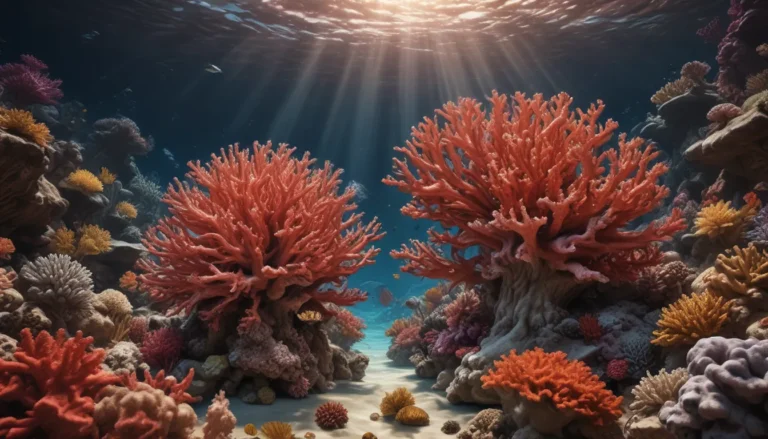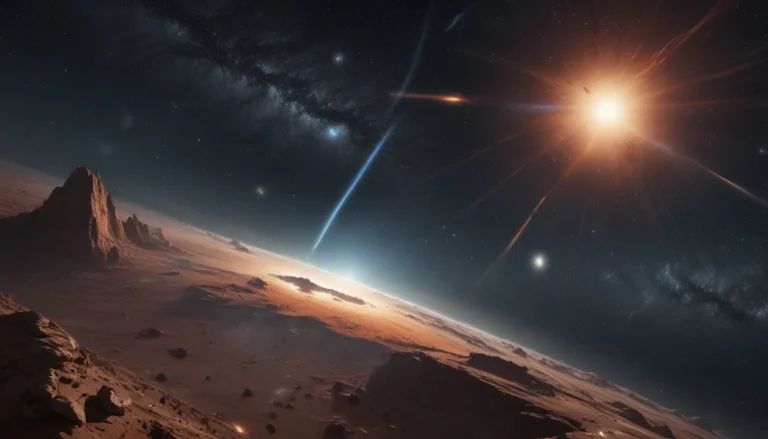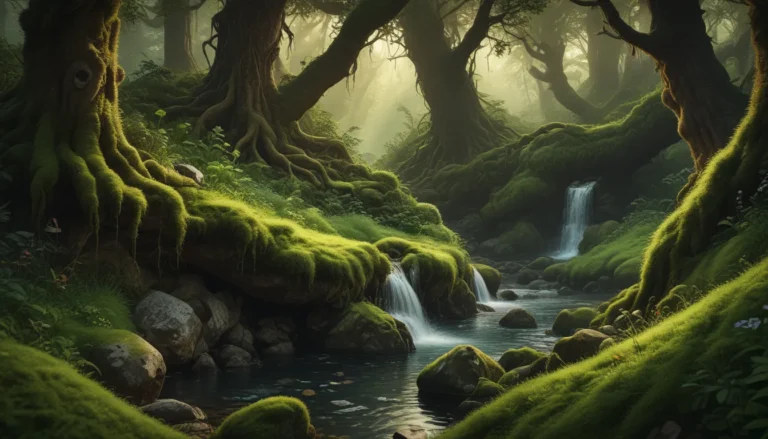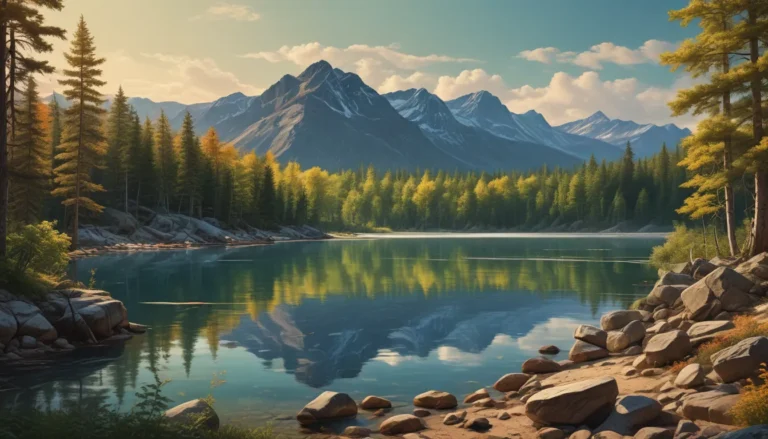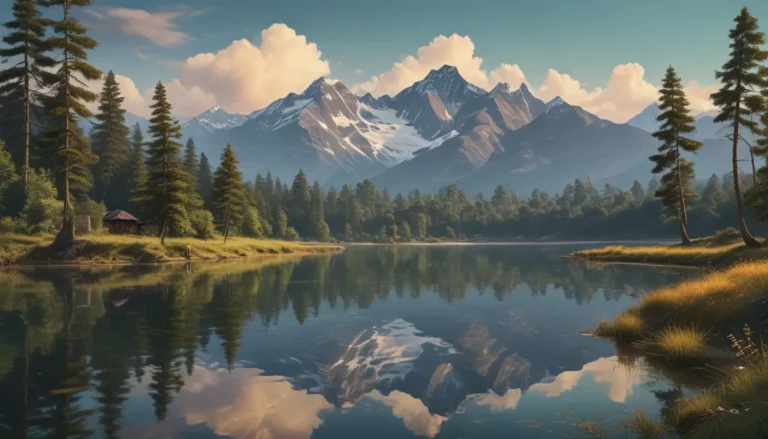The pictures we use in our articles might not show exactly what the words say. We choose these pictures to make you interested in reading more. The pictures work together with the words but don’t take their place. The words still tell you the important facts.
Ponds are captivating and vibrant ecosystems that can be found across the globe, each teeming with a diverse array of plant and animal life. Whether you stumble upon a serene pond in a park or have one nestled in your backyard, there is always something new to learn and appreciate about these natural wonders.
In this article, we will uncover 13 intriguing facts about ponds, shedding light on their significance, characteristics, and the fascinating creatures that inhabit them. From the formation of ponds to their role in supporting biodiversity, prepare to dive into the secrets that lie beneath the tranquil surface of these mesmerizing aquatic environments.
Key Takeaways:
- Ponds are dynamic ecosystems that support a wide range of plant and animal life, contributing to the overall health of the environment and offering a source of natural beauty and tranquility.
- Ponds play a vital role in the water cycle, serving as important breeding grounds for many species, and inspiring creativity and artistic expression through their serene and captivating presence.
Ponds: Nature’s Haven for Wildlife
Ponds are natural freshwater habitats that serve as vital ecosystems, providing a home to a diverse range of plants, insects, fish, and amphibians. These vibrant bodies of water support a rich array of wildlife, making them essential sanctuaries for various species to thrive.
The Lifecycle of Ponds: From Formation to Transformation
Ponds are temporary water bodies that are typically formed by rainwater accumulation or melting snow. During periods of drought, ponds may dry up, only to be replenished again by nature's cycles. These dynamic systems undergo seasonal changes, transforming from lush havens of life in the summer to icy wonderlands in the winter.
Ponds: Guardians of the Water Cycle
Ponds play a vital role in maintaining the water cycle by acting as natural reservoirs, storing and filtering water, and replenishing groundwater sources. Their presence is crucial for supporting the balance of aquatic ecosystems and ensuring the sustainability of water sources.
The Symphony of Life in Ponds
Ponds support a rich array of plant life, including lily pads, cattails, water lilies, and various aquatic plants that thrive in and around these aquatic environments. In addition to plants, ponds are also home to a variety of fascinating creatures, from graceful frogs and colorful fish to darting dragonflies and entertaining turtles.
A Refuge for Breeding and Biodiversity
Ponds serve as important breeding grounds for many species, particularly amphibians like frogs and salamanders that rely on these ecosystems for mating and laying their eggs. The unique combination of habitats in and around ponds makes them hotspots for biodiversity, attracting a diverse range of species and contributing to the overall health of the ecosystem.
Ponds: Balancing Act of Nature
Ponds are not just bodies of water; they are essential components of the ecosystem that help purify water, provide habitats for beneficial insects that control pests, and offer food sources for predatory animals. Their contribution to the health and balance of the environment is invaluable, making them indispensable to the natural world.
The Beauty and Serenity of Ponds
With their calm waters, lush vegetation, and serene sounds, ponds are a source of natural beauty and tranquility. The peaceful atmosphere they exude has a soothing effect on the mind and soul, creating a haven of relaxation and contemplation amidst the hustle and bustle of everyday life.
The Artistic Inspiration of Ponds
Ponds have long been a source of inspiration for artists and writers, captivating their hearts and minds with their beauty and serenity. From paintings and sculptures to poetry and literature, ponds have woven their magic into countless creative works, leaving a lasting imprint on the artistic world.
Creating Your Own Pond Paradise
Ponds can be created artificially for various purposes, such as irrigation, recreational activities like fishing, or as ornamental features in gardens. By understanding the ecosystem of ponds and their maintenance requirements, you can bring the tranquility and beauty of these aquatic sanctuaries right into your backyard.
Ponds: Gateway to Wetland Ecosystems
As miniature wetlands, ponds play a crucial role in supporting wetland ecosystems, contributing to global biodiversity and serving as stepping stones for migratory species. Their presence enhances the interconnected web of life, providing essential habitats for a wide range of flora and fauna.
FAQs: Quenching Your Curiosity
- What is a pond?
-
A pond is a small body of water that allows sunlight to reach the bottom, supporting aquatic plant growth. Ponds can be natural or man-made.
-
How are ponds formed?
-
Ponds can form through various processes, including the melting of glaciers, rainwater accumulation, or beavers building dams.
-
What plants can be found in ponds?
-
Ponds are home to a variety of plants, including lily pads, cattails, water lilies, algae, and floating plants.
-
What animals live in ponds?
-
Ponds support a diverse array of animal life, including fish, turtles, frogs, ducks, dragonflies, and various insects.
-
Are ponds important for the environment?
-
Yes, ponds are crucial for the environment, providing habitat, filtering water, controlling erosion, and supporting ecosystem health.
-
Can I have a pond in my backyard?
-
Yes, you can have a pond in your backyard with proper research and understanding of maintenance requirements for sustainability.
-
How do ponds benefit humans?
-
Ponds offer recreational opportunities, a peaceful environment, and mental well-being benefits, enhancing overall quality of life.
-
Do ponds attract mosquitos?
- Ponds can attract mosquitos, but strategies like introducing mosquito-eating fish or mosquito-repellent plants can help manage their population.
Conclusion: The Wonders of Ponds Unveiled
In conclusion, ponds are awe-inspiring ecosystems that provide a window into the marvels of nature. These dynamic bodies of water are teeming with life, each playing a crucial role in the delicate balance of a pond's ecosystem. From their tranquil beauty to the essential services they offer, ponds are truly a testament to the splendor of our natural world.
Join Us on Our Journey of Exploration
Our commitment to delivering trustworthy and engaging content is at the core of our mission. Every fact shared on our platform is contributed by real users, ensuring a diverse wealth of insights and information. Trust in our dedication to quality and authenticity as you embark on a journey of exploration and discovery through the wonders of nature.
